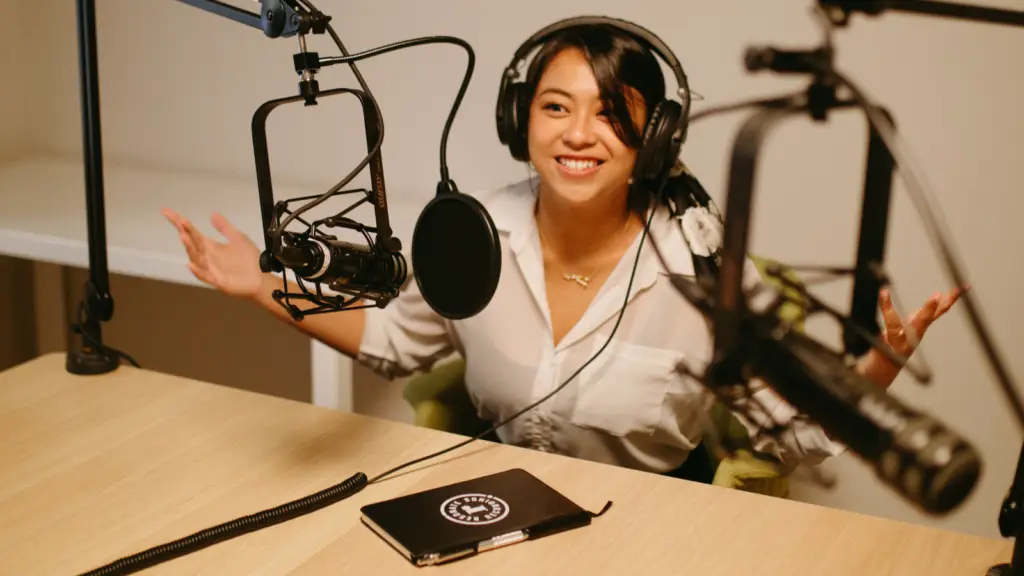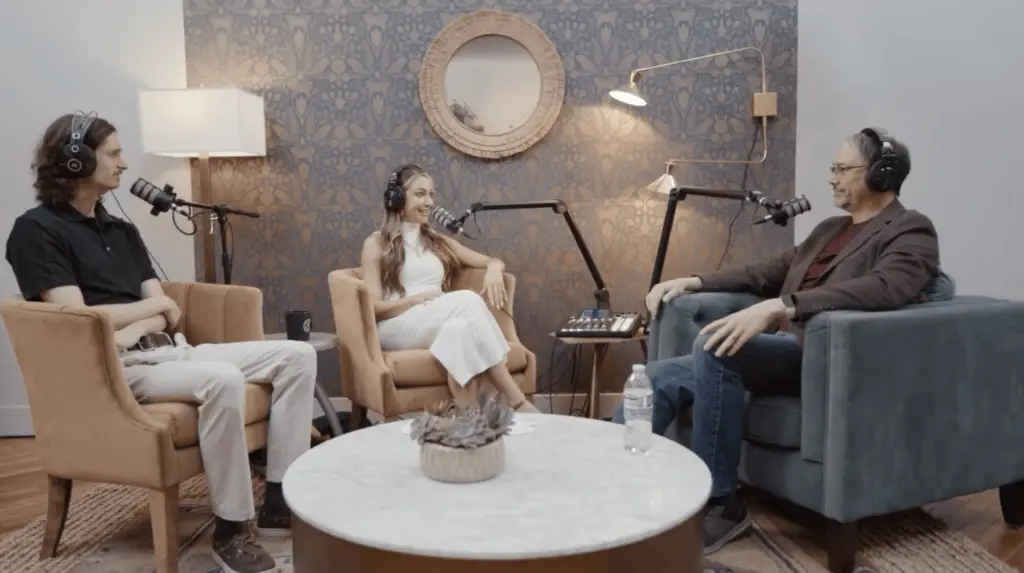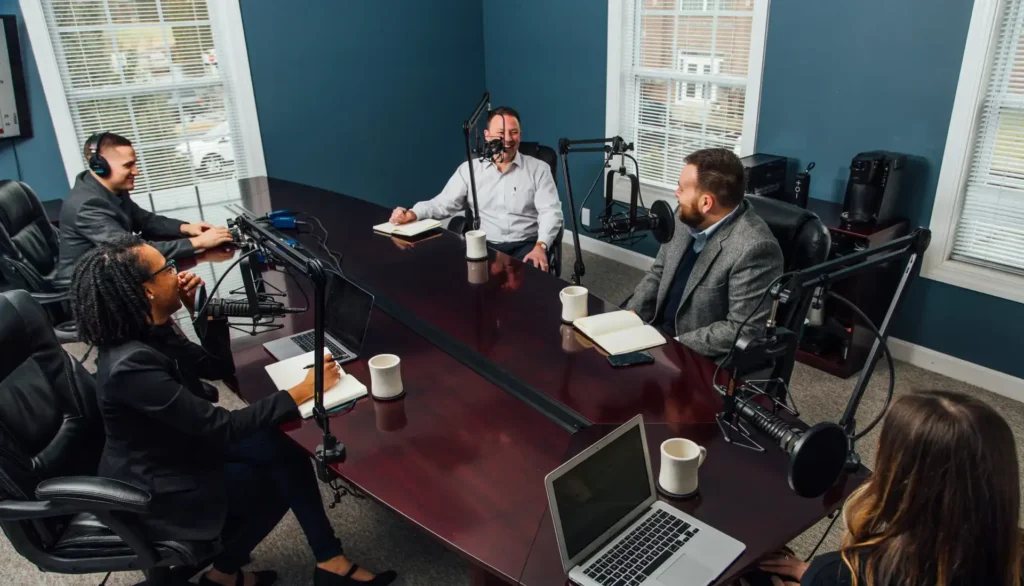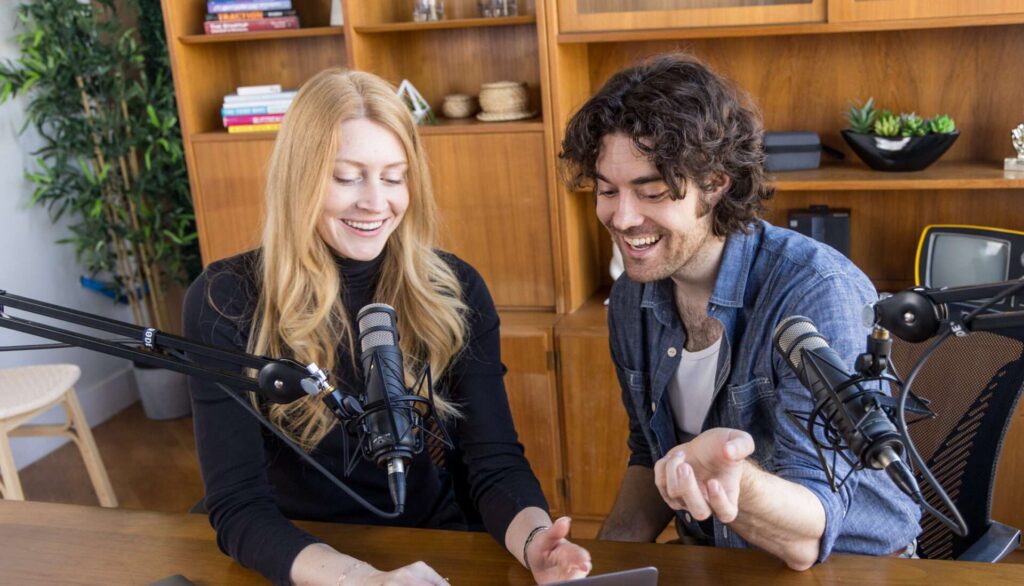Top 18 tips for being a good podcast host in 2024
Quick Note: Some of the links in this blog may be affiliate links which will give us a small commission fee (at no extra cost to you).
No matter your demeanor and personality, your job as a podcast host is to get the best content out of the guests as possible (you can leave the post-production to us!).
You don’t have to be the host of a late-night talk show with perfect segues, or a stand-up comic with a figurative bag of jokes to pull from to keep your guest(s) and audience engaged.
We here at Resonate know what separates a good host from a not-so-good host, and we’re here to help you get your pod to the top of the charts.
Being a good host goes beyond technical aspects like podcast analytics and RSS feeds and good audio and video. Measuring your podcast-hosting skills has to do more with how you conduct the interview process with guests, the type of questions you ask guests, and the like. Look around, and you will see that the number of downloads for podcast content often revolves around the likeability of the host.
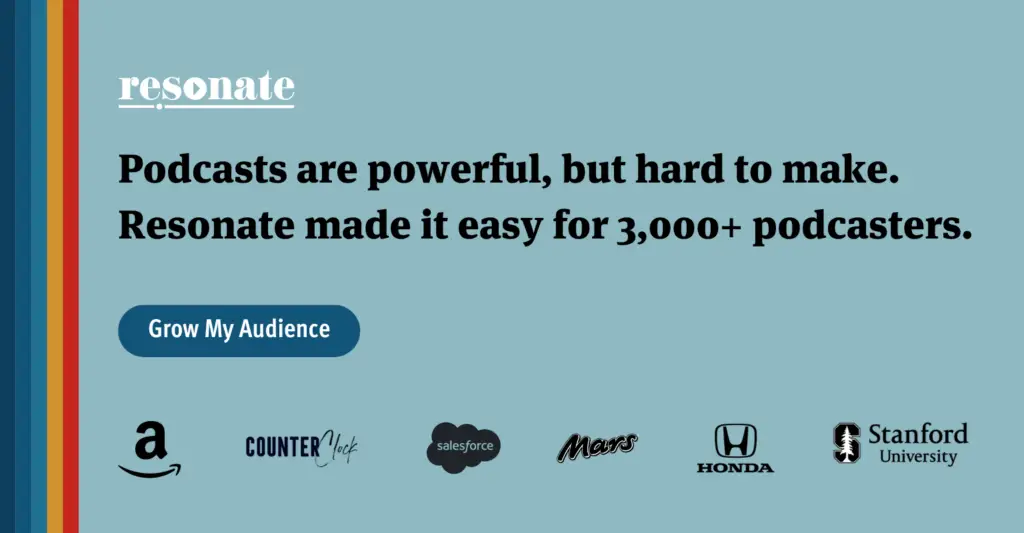
Pre-production: Prepping for the interview
Pre-production is everything you do before you press record and is the secret to many successful podcasts.
When done well, it can seem like the hosts are just making it all up on the spot.
The following are some pre-production tips.
Put the season before the episode
Think about each episode in the context of the entire season. Sketch out the next 5–10 episodes so your show has a sense of purpose and direction. Choose a simple theme with appeal to a wide audience. Define who your audience is and write themes with them in mind. Your topic or story should be compelling, and so should your guest.
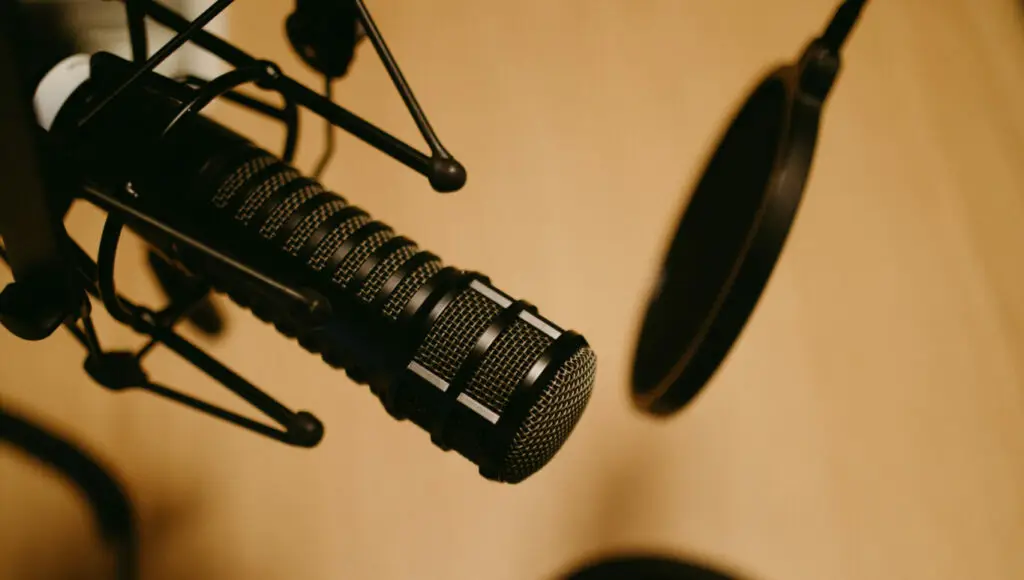
Find a compelling guest on the chosen topic
Select the standard that you want each guest to meet and don’t waver. Schedule a pre-interview call with guests to confirm their experience and compatibility.
Do your homework and research, research, research
Research to get a full picture of the guest and the topic at hand. Naturally, this will make for a better conversation. Look for nuggets that have never been covered before or things you’ll have in common with that person to make for natural conversation. Make the following online searches with the guest’s name or the topic plus:
- Interviews
- [Topic]
- Biography
- Podcast
- Facebook, Twitter, Instagram, LinkedIn
- YouTube
Ask guests for a resume or a bio if they don’t have a social media presence to get some background info. Check any “about” pages on relevant websites.
Ask the right questions
Depending on the length of the podcast, having ten questions based on your research can be sufficient. Always prepare more questions than what you think you’ll need. It can be useful to order the questions so that the list has a beginnning (How did the guest or topic get started), middle (Where is the guest or topic at now), and end (Where is this guest or topic headed in the future. This is also a great place to ask for advice or predictions). Use these questions as talking points to reference throughout the interview, not as a strict script. In preparation, read questions out loud to check their wording—what looks natural on the page may sound unnatural when spoken. Each question should be direct and pointed to encourage focused answers from your guest. Ask yourself:
- Are my questions playing it too safe?
- Do the Q’s push buttons and encourage a debate or dialogue?
- Do the Q’s dig deeper into a well-worn topic or stay on the surface?
- Do the Q’s coax out personal stories or stay fact-driven and dry?
- Would I ask these Q’s in a conversation not being recorded?
- Will these Q’s instigate some introspection?
- How will the A’s to these Q’s help the episode and drive the point of my theme?
Share questions ahead of time
Share the list of questions with your guests to get them comfortable with what you will be talking about. It will give them a chance to prepare answers. Keep a few questions to yourself that the guest hasn’t seen to get a spontaneous answer on something unexpected. This prevents the interview from feeling rehearsed.
Listen
Lots of hosts focus so much on what they are going to say next that they forget to listen. Don’t be this person. Thank you!
Prior prep calls prevent poor podcast performance
Test equipment, feel out the guest’s comfort levels and develop a sense of rapport.
This will give you a clear sense of their interview style, topics to cover, and set the tone for what kind of answers you’re looking for. Feel free to answer any of their questions, and make them feel as at ease as possible during this chat.
Listener engagement starts with guest engagement, which leads to better podcast episodes. And better podcast episodes often leads to more podcast downloads.
Create a beat sheet
A beat sheet is an outline for the interview. It looks like this:
- BEAT 1 – INTRO (With several bullet points of things you’d like to make sure you get to in the intro)
- BEAT 2 – INTRO GUEST
- BEAT 3 – INTERVIEW (Bullet out questions and any additional observations or thoughts you might have in relation to each question)
- BEAT 4 – TRANSITIONS (Bullet out or take note of any transitions you’d like to verbalize between topics)
- BEAT 5 – SEGMENTS (Bullet out any recurring segments you might have and make sure they are covering everything you intend to hit in this “beat”.
- BEAT 6 – OUTRO (Bullet out any recaps, thoughts, and thank you’s)
This will give you a bulletproof cheat sheet on the day of recording and give you confidence that you know exactly how to steer the ship!
Listen to those who have talked before you
Have fun scrolling the charts and listening to the vast array of podcasts that are out there.
Now that you know what it takes to put in the work, you will appreciate the podcasts you listen to in a whole new light.
Take note of interview styles, hosting personalities, effortless scripting, questions asked, guests featured, and music incorporations.
Take notes of what you learned and see how you can integrate some of these techniques and emulate some of the greats that are out there. Someday very soon it will be your podcast that people will want to emulate.
Production: The Interview
This section will include best practices for audio equipment, interview styles, and techniques as well as some tips and tricks to getting your best-sounding voice recordings. Let’s do it!
You are only as good as your audio equipment
Invest in quality equipment or partner with a podcast-production company that has such equipment.
Host a podcast like you would a dinner party
Approach the interview with hospitality as well as curiosity. Keep the listener in mind. Use the language that you use in your everyday life, and if you ever make any mistakes, just edit them out. If you do feel like you flubbed, it’s helpful to start the sentence from the top, not just continue where you left off.
Follow the golden rules of conversation
- Don’t talk over each other, allow the guest to speak first and foremost.
- Encourage stories
- Be a good listener
- Don’t try to multi-task
- Be aware of your pace and speak slowly and clearly
- Avoid unnecessary details that get you sidetracked
- Don’t ask a question before the first one is answered
- Keep the conversation on track by using your list of questions as your guide and keep bringing them back.
- Stay away from short-answer questions (the kind that elicit “yes”, “no”, “maybe”, “I don’t know”) that halt the conversation
TRY PHRASES LIKE
- What do you think/feel about…
- Why should people care about…
- Give me an example of…
- How do you explain…
- What led you to
- Tell me the story of…
- What did it feel like…
- What happened leading to…
- Describe ___….
- Where were you at that point in your life…
- What was the moment when…
Location, location, location!
When planning where to set up a studio, remember the best rooms for recording are carpeted, have curtains on the windows, and have a fair amount of furniture in the room.
Take special note of rooms with loud AC units, or low-level buzzing from technology, laundry, dog barking, or otherwise loud neighbors. And turn your phone to silent.
The mic doesn’t lie
It really doesn’t. In a medium without visual distractions, what comes across people’s top-of-the-line earbuds can be a lovely or harrowing experience. Loud chewing and gulps can be off-putting.
- Avoid caffeine an hour before recording, this will help you with the jitters, which can be heard in your voice. Caffeine’s dehydrating effects can also affect your vocal performance.
- Avoid milk products before recording. Milk products leave a coating in your throat and mouth, creating a phlegmy environment not ideal for attentive ears.
Warm-ups
Before the official beginning of the recording, make your guest feel comfortable with a warm-up chat.
Ask them easy questions, share a funny story, or get them loosened up talking about agreeable topics.
Once you go live, you’re going to want to maintain this energy. Don’t switch into an alternate persona. Don’t get all formal all of a sudden. Just transition smoothly as though you’re continuing the conversation.
Though a podcast is not a job interview, some guests may feel nervous, as though the whole recording is a hiring process. A casual pre-recording warm-up chat can help them shake the feeling that they are sitting down to speak with hiring managers
Post production: After the interview
The show is not over just because the guest left. Post-production is where many crucial decisions are made.
Voiceovers
These can be used as a tool to frame the interview after it’s been captured and repair any holes in the conversation. Adds a great opportunity to insert any missed information and creates a narrative feel.
Edit
Remember the more short your podcast is, the more potent it can be.
Use music as a highlighter
Whether it’s to highlight an emotion, take us through a transition with ease, or set the tone, use music with purpose throughout your piece.
